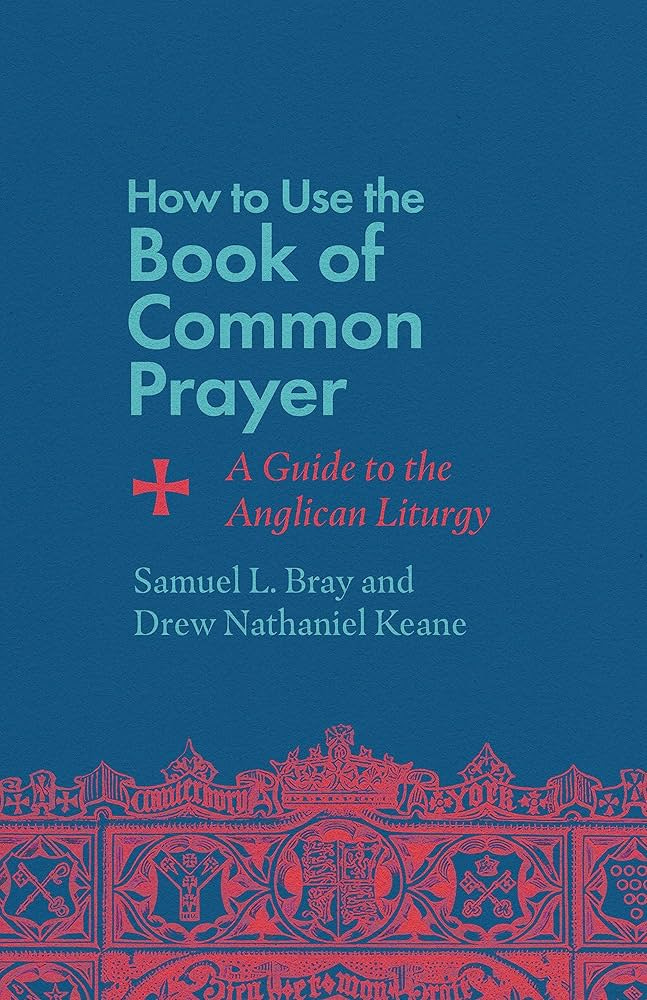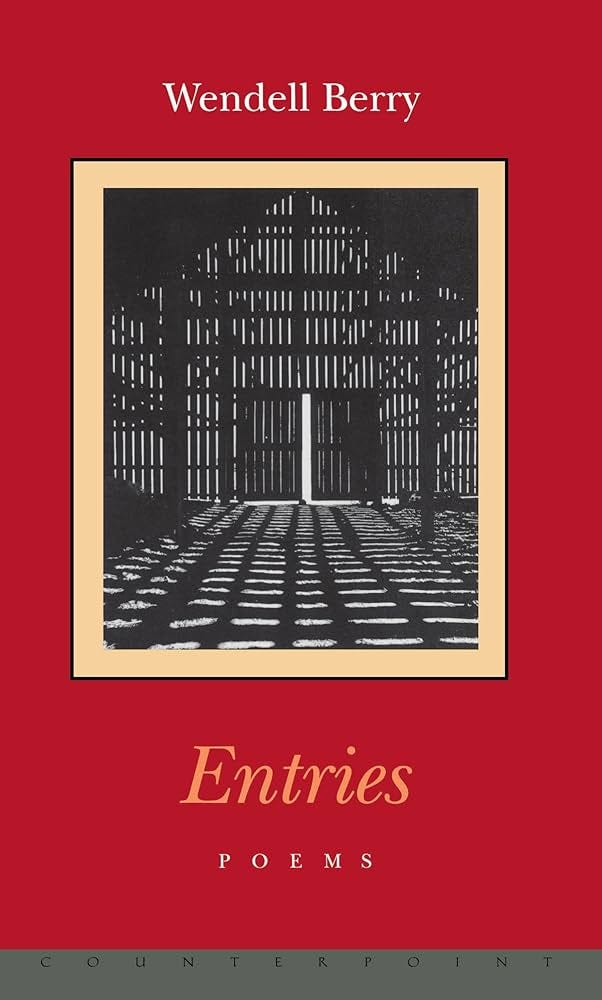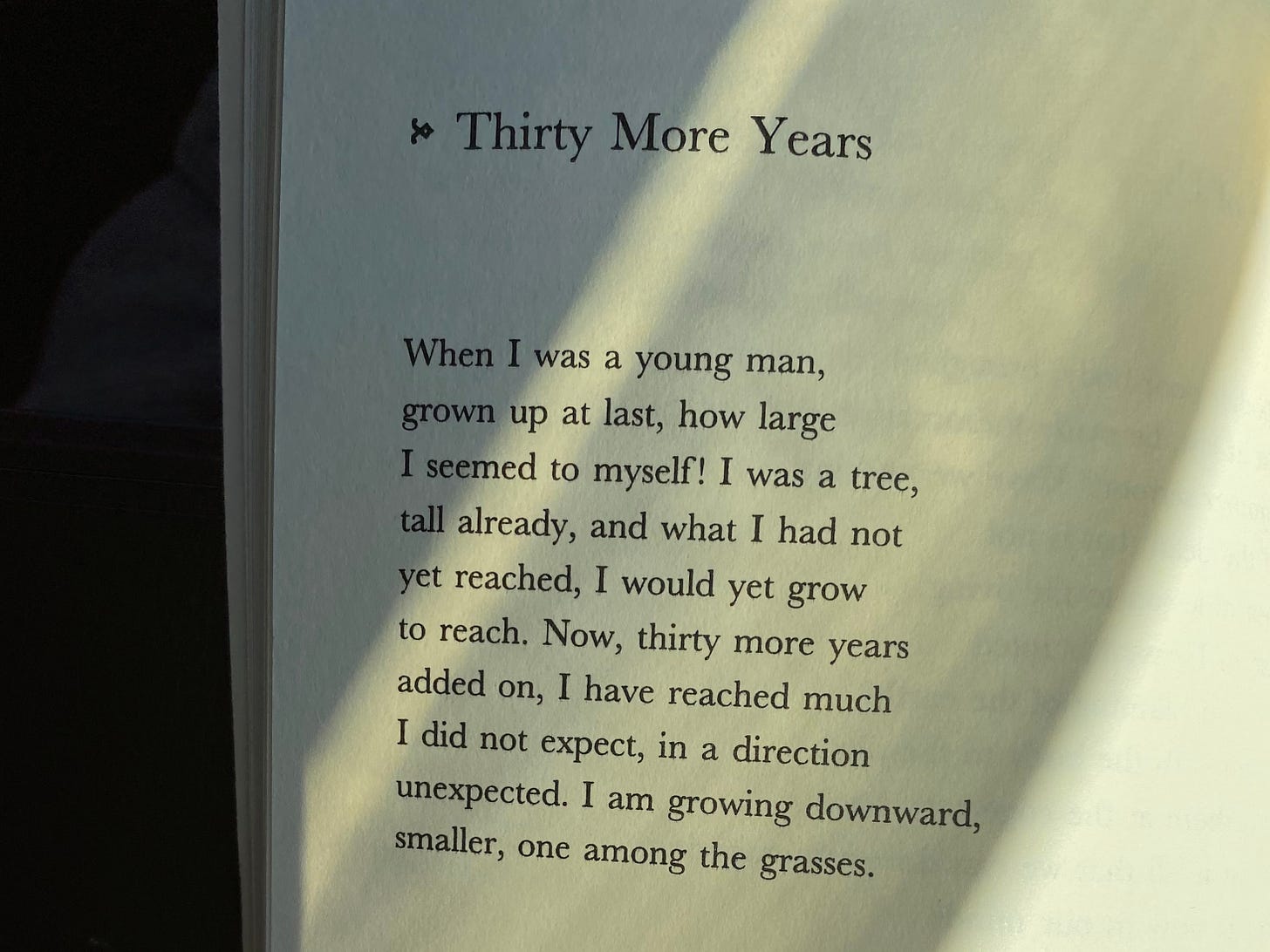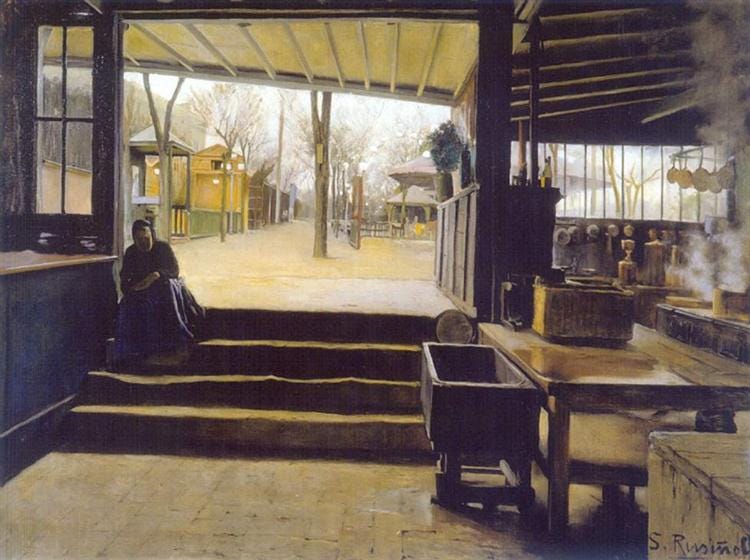Week 40 (2025)
prayer & despair, driving with St. Paul, abortion in America's churches & our moral reasoning
Enjoy this collection of digitally scrapbooked resonances… this attempt to weave unexpected connections… this Imaginary, Weekly Magazine I’d Like To (Or Need To) Read gleaned from other magazines, journals, writers, creators of good things. Perhaps it is many things. I can’t guarantee a niche (my life story, amiright) but I can guarantee the equivalent of a satisfying charcuterie board. Comments are imagined to be around a conversation table. Cheers.
to read: books
How to Use the Book of Common Prayer — Samuel L. Bray and Drew Nathaniel Keane — Brief and helpful. Here’s a review from Jake Meador.
Entries — Wendell Berry — Gems upon gems. Read this one in all kinds of light: streaming window light, sunset glows, candlelight, etc. Just how Wendell probably intended.
to read: essays, articles, newsletters
- , Attention Span — “For the sake of transparency, here’s what I came up with when I first began to notice that my prayer life was practically nonexistent. Lack of gratitude was a nontrivial factor, but let’s zoom in on the intercession part.”
Saint Paul Says Drive — Zachary Czaia, Dappled Things — “And Paul started to cry there, somewhere in the middle of Ohio,
his face a mix of smeared mayonnaise and tears, remembering
this young mother who’d lost a son, killed in some battle
in a war no one remembered anymore.
He got off the freeway, pulled into a gas station
and continued to weep, big body-wracking sobs
that confused and frightened me.
The woman Damaris,
he kept saying between sobs,
She is the world. The WORLD, you see?”
Practical Alternatives to Despair —
, Paging Dostoevsky — “And in the end, despair drives away the people we love.”Running Away, Running Toward —
, Morning In The Broken World — “Sometimes everything feels too heavy to run towards anything good, and it feels easier to run to old vices, away from community, and into despair. We can resist. I have to believe that.”Reverberations — Kristiana Gibbs, The Clayjar Review —
“The Lord, I think, did not prowl in anger
Upon entering Eden after
(though he could have).
The Lord’s foot fell on stones
Steady and sure
To meet wool tangled in gnarled
Roots
And uplifted one single branch
In love
To Let light in.”
Moral Worth and the Legality of Abortion —
, Word on Fire — “Our moral reasoning errs when we imagine we can consider any one person “in isolation.””(Her own new book fittingly released the same day!)
From Social Gospel to Contraception —
, Mere Orthodoxy — “They began to describe birth control more routinely in terms of “responsible parenthood” for their middle-class parishioners – that is, as a moral decision that each couple needed to make for themselves (and which they had a duty to make “responsibly”). This method of speaking about moral decision-making reflected a new liberal Protestant embrace of existentialist thinking in the early postwar era. While Catholics cited natural law principles and the authority of the magisterium as a universal objective standard for moral reasoning and conservative evangelical Protestants emphasized biblical precepts, liberal Protestants eschewed such inflexible standards and instead argued that each person had a duty to arrive at their own moral conclusions based on a personal encounter with the “other” …Morality could not be dictated from above; it was discovered from within… Even the prohibition against murder, [Fletcher] argued, could legitimately be broken for the sake of love for one’s neighbor.”
(Recently someone described some confounding attempts at moral reasoning in this realm as “a very low view of systemic theology and an implicit biblicism that veers ever so closely to a kind of relativism.”
This book looks to be a frighteningly good pairing with Amy Laura Hall’s Conceiving Parenthood. History often helps put in context some foundational dispositions we—culturally and individually—bring to our bodies, sex, and children. As with certain digital technologies, medical technology doesn’t create these dispositions, but can certainly streamline and coddle the worst of them. Plausibility structures are always being formed. Christians of all people ought to be spiritually attuned to them. I continue to be shocked at how prescient Neil Postman's chapter on medical technology has become, and how pervasive its imaginary.
I’m reminded of this brief comment of ’s:
“…the culture of death we find ourselves in now has been the status quo for a long time. The early church faced it head on by dignifying women, slaves, and children in a way that was wildly counter-cultural. This would be a good book to pair with Oliver O’Donavan’s Begotten or Made in my imaginary course on bio-ethics and faith.”
My kinda people. I’m just adding to the imaginary course list. Alas, this newsletter is for collecting the bread crumbs before they blow away. Perhaps more coherent thoughts later.)
more on sexual and reproductive ethics—in medicine, society, and our own lives:
to watch, listen to
Continuing On:
Mere Fidelity — After After Virtue with Jason Blakely — Went through After Virtue a couple years ago, but truly only a handful of parts felt like lightbulb moments. It’s out of my wheelhouse, okay. // “Intuitions are shaped by tradition, and peoples’ intuitions differ according to what tradition they’re a part of.” // “You gotta start with what people are doing in embodied practice… MacIntyre’s Aristotle is an Aristotle whose ethics starts with what we already do as embodied agents… human beings spontaneously have practices, and they need certain character traits (virtues) to sustain those practices… a branch of practical action, not of theory.” // “ You can see here why he converted to Roman Catholicism, because he thinks objectivity is only possible on the horizon of a tradition… his anthropology is not total depravity, its a kind of humanism.” // “[Roman Catholic] theology fit better with what he knew from philosophy about our anthropology.” // “One of the reasons he’s so attracted to Thomism is not foremost theological, it’s anthropological… the reasons were because he thought that Thomas Aquinas gave a better account of the virtues needed for our anthropological dependency.”
The Natural Womanhood Podcast with Grace Emily Stark — Season 4, Episode 4 — Why Body Literacy and Informed Consent Go Hand-in-Hand with Katie Vidmar — “What does it look like to distill this vast body of evidence that we have… to what’s simple, essential, and easily communicated?” // “We cannot protect what we do not know.” // “[Because of the pill’s ubiquity] they’ve never been taught how their body works in a state of health.” // “Body literacy informs a women for the entire lifespan of her fertility… we still need to know and care for our bodies, and navigate the healthcare system [past the fertile years].” Her talk at the 2025 Guiding Star conference shocked me a few months ago, with how perceptive the observations and how whole her vision. Again with the coherent anthropology!
Woven Well Podcast with
— Episodes 107-108 — Reproductive Immunology and Pregnancy Loss and Choosing a Method
(more resources here)
to glean from
Something Beautiful
Our church’s 2025 group baby shower. I cried for perhaps more than one reason. But at almost 6 months postpartum with our fourth child, it was a welcome—if not unexpectedly tender—experience.
Every now and then it’s nice to put on Bach’s St. John Passion.
Something Helpful
I was going to let you help me, and link a survey doc. But since I am a mere mortal with tiny children to care for and housework to accomplish, will have to do it later.










![the [female] body: a compilation](https://substackcdn.com/image/fetch/$s_!wWgM!,w_140,h_140,c_fill,f_auto,q_auto:good,fl_progressive:steep,g_auto/https%3A%2F%2Fsubstack-post-media.s3.amazonaws.com%2Fpublic%2Fimages%2F4915e0a2-6b60-42c4-93c8-748af2fa1f4c_480x360.jpeg)

![the [desecrated] body: a compilation](https://substackcdn.com/image/fetch/$s_!dRya!,w_140,h_140,c_fill,f_auto,q_auto:good,fl_progressive:steep,g_auto/https%3A%2F%2Fsubstack-post-media.s3.amazonaws.com%2Fpublic%2Fimages%2F5c9d3ae9-c6b3-42ba-a5db-f5b7f91da982_555x600.jpeg)






Thanks for the mention alongside these wonderful authors! I feel like I've made it on substack now haha.
Will officially be saying “my wife is actually pretty big on Substack" now.